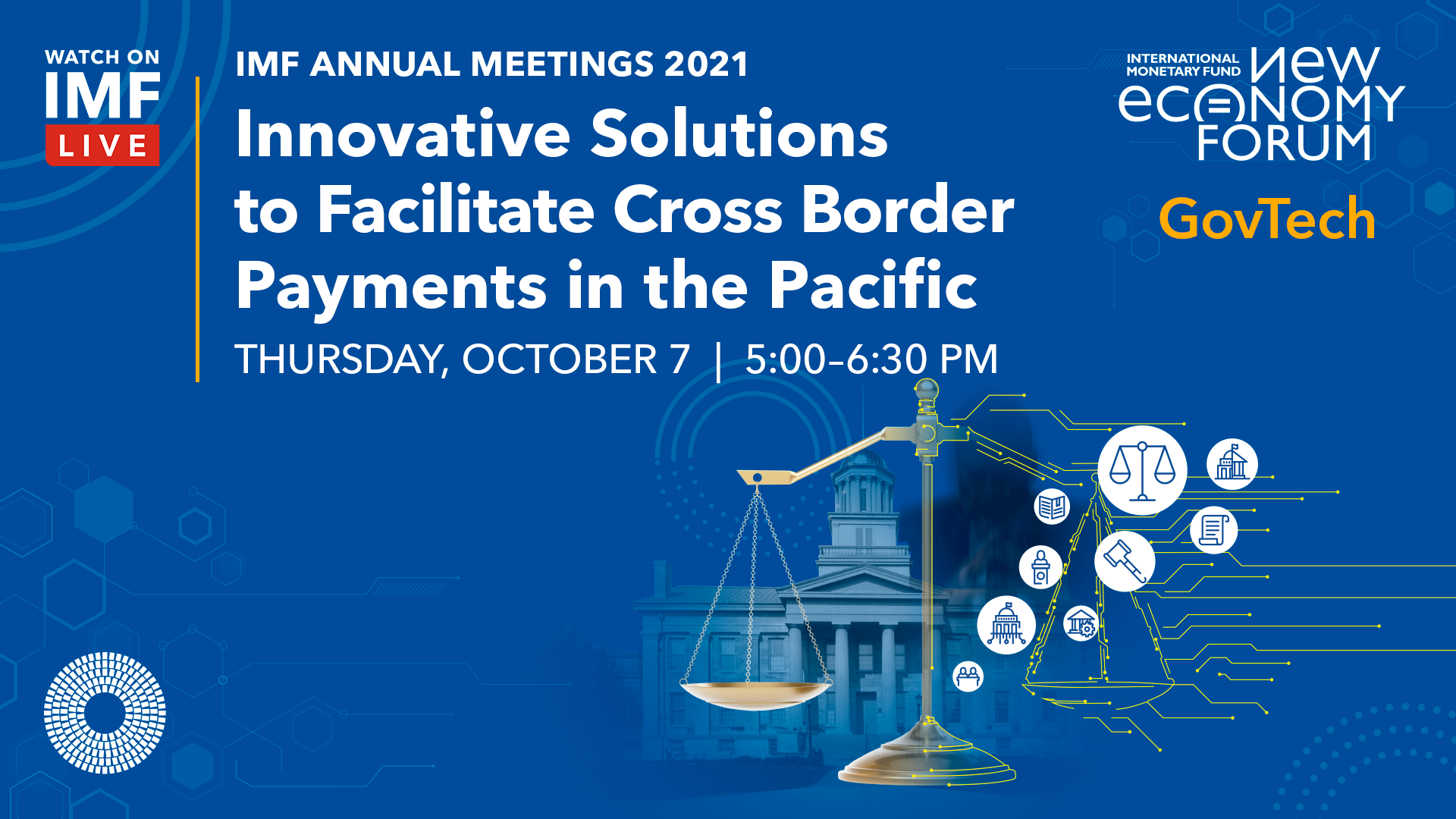Thursday, Oct 7, 2021 | 06:00 PM - 07:30 PM
Location: HQ1-BL-517 (AV CORE)

Ongoing pressures on correspondent banking relationships have an impact on access to finance for Pacific island countries, including on remittances which many of these countries are highly dependent on. This panel discussion will explore the extent to which emerging, innovative solutions such as safe payment corridors, regional Know-Your-Customer (KYC) utilities and digital ID can help address banks’ risk and profitability concerns and facilitate cross-border payments in the Pacific region.
 |
Opening Remarks |
 |
Moderator |
 |
Ashish Kumar |
Ashish Kumar has been part of the Financial Action Task Force (FATF) Secretariat since 2015. He is the team lead in the Policy Development Group, working on policy issues such as de-risking, information sharing, cross-border payments, beneficial ownership, risk-based approach and proliferation financing. Before joining the FATF Secretariat, Ashish was division chief with the Indian financial supervisory authority, apart from being an ML/TF assessor for the APG region.
 |
Erin Lubowicz |
Erin Lubowicz is the Deputy Executive Secretary of the Asia Pacific Group on Money Laundering. Prior to joining APG, Erin was a Chief Advisor at New Zealand’s Ministry of Justice and served as New Zealand’s head of delegation to the Financial Action Task Force and the APG for 6 years. Erin brings a wealth of technical expertise to the role, as well as extensive leadership and governance experience. Prior to moving to New Zealand, Erin served as an Assistant Attorney General in Palau and practiced commercial litigation in the United States. Through her varied experience, Erin has developed a broad understanding of the issues facing APG jurisdictions, both large and small.
 |
Aliimuamua Malaefono Taua-T. Faasalaina |
Aliimuamua Malaefono Taua-Faasalaina (also known as Fono) is the Government Statistician and the Registrar General for Civil Registration in Samoa. She is a demographer by profession and her career in the last 25 years was mostly in the area of data collection, compilation, data analysis and dissemination of results of socio-economic census and surveys. Her appointment in January 2018 with dual roles gave her the first opportunity to focus and engage more on the much-needed improvement in Samoa's civil registration processes, tools and systems. The National ID project which the Samoa government also officiated in July 2018 with financial assistance from the World Bank under her leadership is an extra role which is quite a challenge but similarly an exciting journey for Fono to manage all three unique sources of citizens data.
 |
Richard Bunting |
Richard Bunting has a background in policy and regulation in the public and private sectors. He has been employed by AUSTRAC, Australia’s AML/CTF regulator and financial intelligence unit, for over 14 years covering roles in Policy and Intelligence Partnerships. Richard is currently a Principal Specialist in the Education, Capability and Communications Branch, undertaking a range of discrete projects. Richard is also involved on behalf of AUSTRAC in various inter-government working groups considering options to address de-banking and the loss of correspondent banking relationships in the Pacific.
.jpg) |
Robin Newnham |
Robin Newnham is Head of Policy Analysis at the Alliance for Financial Inclusion, a global network of policymakers and regulators working towards inclusive finance for all, from more than 90 emerging markets and developing countries. His work includes developing policy insights on emerging financial inclusion trends, including the opportunities and risks arising from technological innovation as well as policy solutions for disadvantaged groups such as youth and forcibly displaced persons. Robin also supports AFI’s membership to implement policy and regulatory reforms to advance financial inclusion and represents AFI in the G20 Global Partnership for Financial Inclusion, and in policy dialogues with global standard setting bodies such as the Financial Action Task Force and the Financial Stability Board. Prior to joining AFI, Robin spent seven years working for the United Kingdom Treasury, overseeing the implementation of the UK’s first national financial inclusion strategy, as well as roles in global economic analysis, and countering the financing of terrorism.
Declining correspondent banking relationships has an impact on access to finance for Pacific island countries, including through remittances. The panel discussed the extent to which emerging innovative solutions could help address banks’ risk and profitability concerns.
Key Points:
Quotes:
“Without collaboration, it would be difficult to pursue Digital ID. We also need a very strong legislative framework in the use of digital services so that we are all protected.” Aliimuamua Malaefono Taua-T. Faasalaina
“The risk of doing nothing is the big issue. Stakeholders need to understand the risk of doing nothing. This bigger risk usually gets lost in the process.” Erin Lubowicz
Contributor: Chola Milambo, IMF, Secretary’s Department